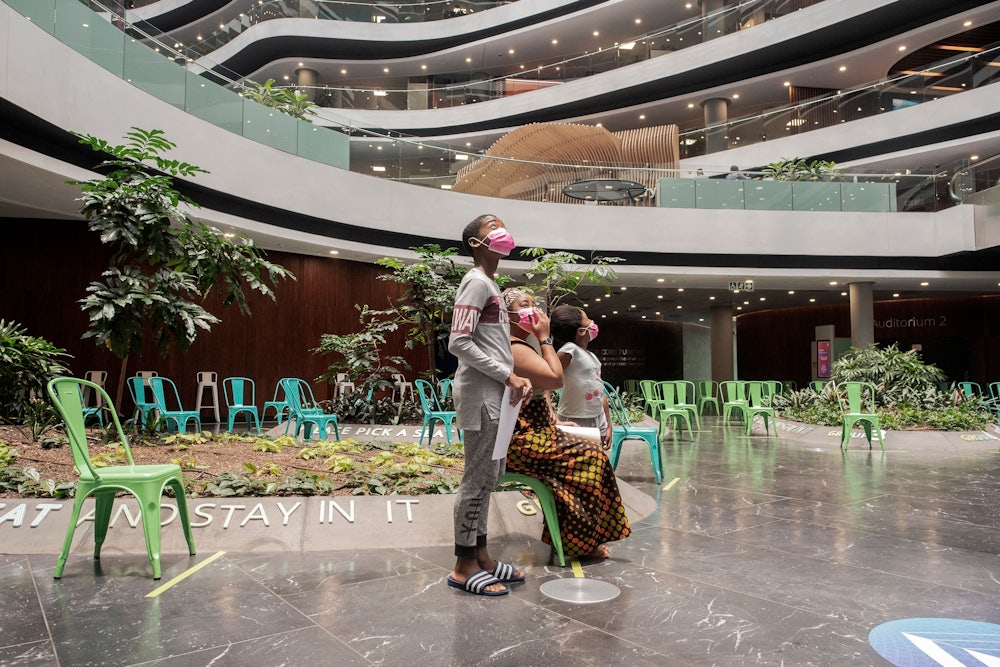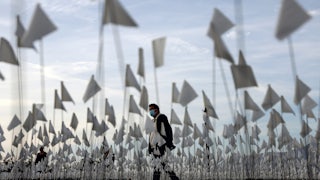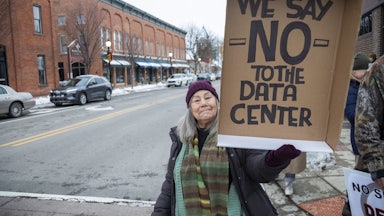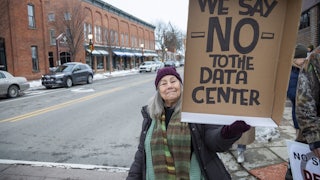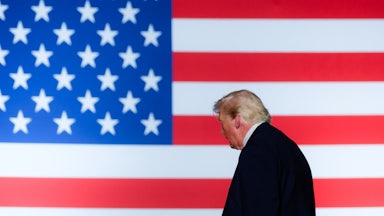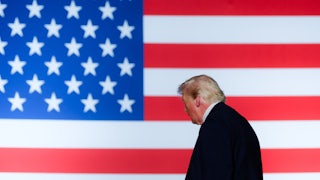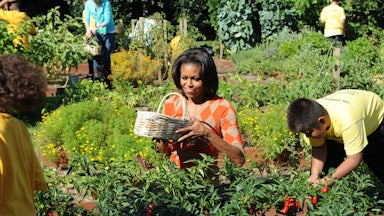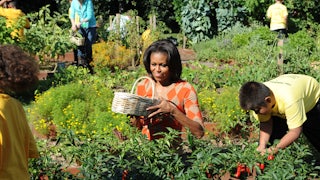The other day in Pretoria, South Africa, a German expatriate told me about an entire classroom of kids at a private international school who came down with Covid-19 over a three-day period. One of my work colleagues, whose only known risk was grocery shopping in a mask, had to skip Zoom meetings because the virus knocked her flat.
Graphs of the latest Covid surge in South Africa have been close to vertical, and the culprit is clear: Within a few weeks, the omicron variant has gone from less than 1 percent of cases to more than 90 percent. In Gauteng province, where I live, one in 500 people is currently infected with omicron. Given how many asymptomatic cases go undetected, the real number is probably closer to one in 50.
With such numbers, contact tracing and quarantines become all but meaningless. Even the individual goal of avoiding infection comes to seem quixotic. Therefore, rather than trying to suppress omicron, the South African government is now assuming, essentially, that everyone will get this virus. Although the country retains some mild restrictions on indoor and outdoor gatherings, unmasked diners fill restaurants. Shift workers throw down after-work pints in informal taverns.
According to Shabir Mahdi, the University of the Witwatersrand’s dean of public health and a former member of the Ministerial Advisory Committee on Covid-19, the president’s Cabinet will likely consider additional preventive restrictions only if a health system collapse seems imminent. That is, the government’s priority this time around is to try to avoid economic losses—or, as President Cyril Ramaphosa put it in a recent address to the nation, “to manage this pandemic, to resume many of our daily activities, and to rebuild our economy.” Officials see vulnerability to hunger and unemployment as greater threats than Covid, given that an estimated 60 to 70 percent of South Africans have prior immunity, either from vaccination or prior infection.
The government also learned from earlier Covid waves, says Mahdi, that even the harshest lockdowns didn’t achieve the desired impact in a country where so many people live in crowded apartment buildings, houses, or shantytowns. And then there’s the specter of last July’s uprising, in which thousands of desperate people looted malls and supermarkets, a warning signal to the authorities about the dangers of severe public health restrictions.
Perhaps lockdowns are futile with a variant so infectious—around three times more so than delta, early estimates suggest—that you can acquire it during a five-minute grocery shopping trip. Maybe mass infection really is the lesser evil facing the country. But, like the Swedish government’s “herd immunity” policy at the beginning of the pandemic, the South African government’s current omicron strategy is a potentially fatal gamble.
There has been a surge in national pride in South Africa, despite the devastation caused by the pandemic. The sense here is that omicron may not have even originated in southern Africa but that our world-class scientists and research institutes, with decades of experience monitoring HIV and tuberculosis, were especially skilled at detecting pathogen mutations. South Africans are also proud of our scientists’ independence from government (especially in comparison with, say, Wuhan, China).
But there’s also the widespread feeling that South Africa is being punished for its scientific advances and honesty. On Twitter, Facebook, and TikTok, as well as around neighborhood braais or shisanyamas, the barbecues that most South Africans attend several times a week during the warm months, talk focuses less on the threat of omicron than the West’s recent, discriminatory travel bans on travelers from southern Africa. As with many developing countries, South Africa’s economy relies heavily on tourism. With under-25 unemployment at 75 percent, the country, which suffers from mass pandemic-related poverty, can ill afford the large-scale, high-season tourist cancellations that have followed the bans.
Tulio de Oliviera, who led the team of South African scientists who alerted the world to omicron, has become a national hero of sorts—and a strong voice against the bans, tweeting, for example, that “SA has leading T-cell immunologists who [cannot] get reagents [because of] the silly travel ban.”
President Ramaphosa has also won praise for a recent series of speeches in which he condemned aforementioned bans as “unscientific,” “arbitrary,” and “colonial” (“unscientific” because it is ineffective to ban travel from a single region when a virus is present in most of the world; “arbitrary” and “colonial” because the bans targeted African countries with very little community spread, like Mozambique, while exempting European ones with major omicron pandemics, like Britain and the Netherlands).
On the flip side, the rogues’ gallery is led by the government of liberal, multicultural Canada, which, in addition to banning southern African visitors, spent a week refusing to recognize PCR tests performed in countries like South Africa and Botswana. Of course, as South Africans pointed out, the only reason Canada even knew of omicron’s existence was because of the very PCR tests deemed by Ottawa to be substandard. But there is enmity to spare for the West in general for vaccine hoarding, which is seen as just the latest example of a centuries-long disregard for African lives.
And yet South Africa’s legitimate outrage at the West can seem, at times, to manifest as a collective thumbing of the nose at Covid-19 itself. That’s worrying. In a country where almost six million people over 60 will not be eligible for booster shots until late January, a laissez faire policy amounts to a bet that omicron will not be able to evade old people’s presumably waning T-cells. It is also a wager that whatever long-Covid disabilities result from mass infection will be less costly to the country than lockdown-related suffering. The results of these decisions will only become clear in the coming weeks, as enough time passes to begin to measure deaths, hospitalizations, and long-term disabilities.
A nation of guinea pigs, South Africa can only hope that omicron turns out to be milder than its predecessors. And we can only ask that public health decisions going forward be taken with a view to ordinary citizens’ well-being, rather than political optics in the wake of a travel ban that was itself largely motivated by politics. One sure way to intensify the damage of the bans would be to overcompensate and protect South African livelihoods at the expense of South African lives.
Whatever happens, those of you in the West who have been watching South Africa the past few weeks are about to be as flabbergasted as we are.
